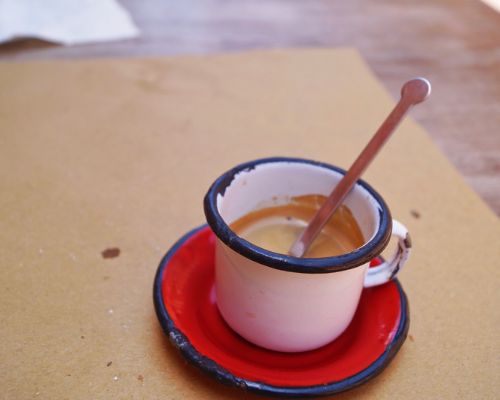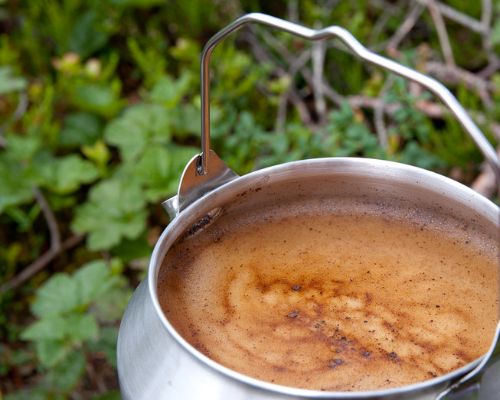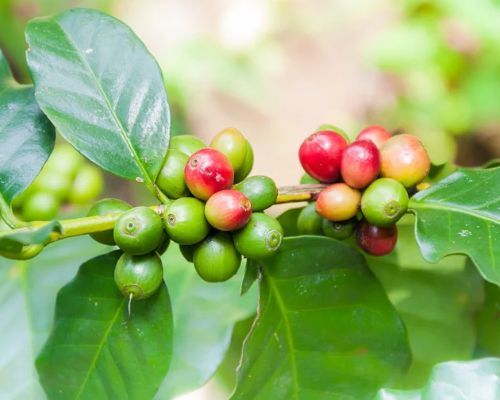Culture: Love Coffee? Get it local.
You’ve probably heard of Madagascar vanilla, but not coffee, as it is not (yet) widely exported. However, coffee is wildly consumed locally and has a long and rich tradition in Madagascar. Indeed, it we could say that it has an important part of daily life for many Malagasy people. Coffee is grown in various regions of Madagascar, and the island’s highlands all along the eastern coast, are particularly known for their exceptional coffee beans.
One of the unique aspects of coffee in Madagascar is how it is often consumed. Malagasy coffee is typically served with sugar. A lot of sugar. In fact, the sugar often becomes just as much a part of the coffee experience as the coffee itself. The sugar is used to balance the bitterness of the coffee, and it is not uncommon to see people add several spoonfuls, and if milk is used, it is usually sweetened condensed milk.
Kids Drink Coffee!
Another interesting aspect of the coffee tradition in Madagascar is that it is often given to children. While coffee is reserved for adults in many other countries, in Madagascar, it is common for children to enjoy coffee with a heavy dose of sugar. It is common to see children as young as five or six years old drinking coffee with their parents or grandparents. It is seen as a way of passing on tradition and simply a way of starting the day for families working in rice paddies or herding zebu.
Ceremonies and Welcomes
In addition to being a popular beverage, coffee also plays an important role in social customs in Madagascar. It is often served to guests as a sign of hospitality, and it is customary to offer coffee to visitors as a way of showing respect and making them feel welcome. In some parts of Madagascar, coffee is used in traditional ceremonies and rituals. For example, visit a the body of someone recently deceased. There will be coffee served in small cups to the guests throughout the day, and especially at night, when the family stays with the body (in the Antanosy traditions of the South this is done fro three days).
Overall, the coffee tradition in Madagascar is a unique and important part of the country’s cultural heritage. From how it is served with sugar to how it is given to children, coffee plays an important role in daily life and social customs. By understanding and appreciating the coffee tradition in Madagascar, we can better understand the country’s rich and diverse culture.

Ordering Coffee
In many restaurants patronized by foreigners, you will be served imported espresso from a coffee pod. Unless you ask for “cafe allonge” or the “cafe Maison.” When ordering coffee in a local spot or along the road, it most likely already be loaded with sugar, and it may be served in a communal cup, which may not be sanitary. If you can, ask for a fresh brew and rinse your cup with hot coffee before drinking. We generally drink black coffee at home, but after a long drive in the car, a stop along the road to drink the sweet, fresh coffee can be oddly refreshing.
BYOC
Your best bet, if you are a coffee addict and or not fond of sugar or questionable water, is to buy and have roasted your grounds and travel with a thermos when venturing out for the day or a road trip. We always travel with an insulated thermos and sometimes a small percolator.
Buy Me a Coffee

In some areas of Madagascar, this phrase is used as a traditional and respected form of begging. The idea behind this practice is that the person asking for coffee is not simply asking for money but rather for a small act of kindness and hospitality. It is seen as a way for individuals to help each other out and/or make a request after someone has offered assistance, such as helping a stuck vehicle, answering a question, or giving directions. While it is ultimately up to the individual to decide whether or not to give money or buy a coffee for someone who asks, it is important to respond to this tradition with respect. In my own experience, it is generally older folks who make this request.
House Roasted Coffee

While coffee is an important part of the culture in Madagascar, it’s important to note that not all coffee is created equal. If you’re looking for an authentic experience, it’s best to avoid instant coffee or imported espresso and instead ask for Grandma’s house-roasted coffee.
At places like Voky Be, our coffee is roasted weekly in a large wok over an open flame, resulting in a rich and flavorful brew that’s best enjoyed black, without sugar. When we take clients camping, we always heat our fresh grounds with Tatirano over an open flame. Cowboy coffee is what we call this in Colorado, pouring off the top and leaving the grains in the bottom of the pot!
So, if you want to truly experience the coffee culture in Madagascar, seek out the local spots and try our traditional methods.
